Test Bank For Exploring Microsoft Office Word 2010 Comprehensive, 1 edition: Robert Grauer
$35.00
Test Bank For Exploring Microsoft Office Word 2010 Comprehensive, 1 edition: Robert Grauer
Exploring Microsoft Office Word 2010 Comprehensive
Exploring Microsoft Office Word 2010 Comprehensive Robert Grauer
Exploring Microsoft Office Word 2010 Comprehensive Robert Grauer 1
Exploring Microsoft Office Word 2010 Comprehensive Robert Grauer 1 Test Bank
Test Bank For Exploring Microsoft Office Word 2010 Comprehensive, 1 edition: Robert Grauer Download
*** YOU ARE BUYING the Test Bank ***
Name: Exploring Microsoft Office Word 2010 Comprehensive
Author: Robert Grauer
Edition: 1
Type: Test Bank
– there’s a very high chance that you will see a very similar, if not exact the exact, question in the test!
–
–
We also faced similar difficulities when we were students, and we understand how you feel.
But now, with the Exploring Microsoft Office Word 2010 Comprehensive 1 Test Bank, you will be able to
* Anticipate the type of the questions that will appear in your exam.
* Reduces the hassle and stress of your student life.
* Improve your studying and also get a better grade!
* Get prepared for examination questions.
* Can save you time and help you understand the material.
This is the quality of service we are providing and we hope to be your helper.
Test Bank is accurate.
Prepare to receive your Exploring Microsoft Office Word 2010 Comprehensive 1 Test Bank in the next moment.
If you have any questions, or would like a receive a sample chapter before your purchase, please contact us at [email protected]
Exploring Microsoft Office Word 2010 Comprehensive
Exploring Microsoft Office Word 2010 Comprehensive Robert Grauer
Exploring Microsoft Office Word 2010 Comprehensive Robert Grauer 1
Exploring Microsoft Office Word 2010 Comprehensive Robert Grauer 1 Test Bank
Test Bank For Exploring Microsoft Office Word 2010 Comprehensive, 1 edition: Robert Grauer Download
Testbank, Word Chapter 1
1) Which of the following is NOT a feature that is automatically included when Word opens?
A) Horizontal ruler
B) Quick Access Toolbar
C) Zoom dialog box
D) Zoom slider
Answer: C
Diff: 1
Reference: Introduction to Word Processing
Objective: 1
AppChap: Word 1: Introduction to Word 2010
2) Where does the status bar display when Word 2010 opens?
A) Across the bottom of the window
B) On the right side of the Word window
C) In its own pane at the bottom of the document
D) Directly under the Ribbon
Answer: A
Diff: 2
Reference: Introduction to Word Processing
Objective: 1
AppChap: Word 1: Introduction to Word 2010
3) Which of the following is NOT included as part of the status bar?
A) Total number of pages in the document
B) Total number of words in the document
C) The total number of characters in the document
D) The page number where the insertion point is located
Answer: C
Diff: 3
Reference: Introduction to Word Processing
Objective: 1
AppChap: Word 1: Introduction to Word 2010
4) If you narrow the margins of a document and the lines of text of a paragraph with only soft returns are made longer, what happens to the number of soft returns?
A) The number remains the same
B) The number of soft returns decreases
C) The number of soft returns increases
D) All soft returns are replaced with hard returns
Answer: B
Diff: 3
Reference: Introduction to Word Processing
Objective: 1
AppChap: Word 1: Introduction to Word 2010
5) The ________ button in the Paragraph group reveals formatting marks in your document.
A) Section break
B) Draft view
C) Show/Hide
D) Paragraph
Answer: C
Diff: 2
Reference: Introduction to Word Processing
Objective: 1
AppChap: Word 1: Introduction to Word 2010
6) When text automatically continues onto a following page, a hidden ________ marker is automatically inserted.
A) hard return
B) soft return
C) soft page break
D) hard page break
Answer: C
Diff: 3
Reference: Introduction to Word Processing
Objective: 1
AppChap: Word 1: Introduction to Word 2010
7) What is the keyboard shortcut to enter a hard page break?
A) Ctrl+Spacebar
B) Ctrl+Enter
C) Alt+Enter
D) Ctrl+Tab
Answer: B
Diff: 3
Reference: Introduction to Word Processing
Objective: 1
AppChap: Word 1: Introduction to Word 2010
8) Which of the following is FALSE about page numbers in Word 2010?
A) The Page Number command is in the Page Layout tab.
B) Page numbers can be located at the top of the page.
C) Page numbers are located in a header or footer.
D) When adding new pages, page numbers automatically adjust.
Answer: A
Diff: 2
Reference: Introduction to Word Processing
Objective: 1
AppChap: Word 1: Introduction to Word 2010
9) Which of the following is FALSE about Word options?
A) You can change the font default.
B) Tabs can be added to the Ribbon.
C) You can customize the Quick Access Toolbar.
D) You can disallow text to be dragged and dropped.
Answer: A
Diff: 2
Reference: Introduction to Word Processing
Objective: 2
AppChap: Word 1: Introduction to Word 2010
10) Which of the following Word Options menu categories allows you to enable click and type, choose a default paragraph style, and show paste option buttons?
A) General
B) Proofing
C) Advanced
D) Add-ins
Answer: C
Diff: 3
Reference: Introduction to Word Processing
Objective: 2
AppChap: Word 1: Introduction to Word 2010
11) Which of the following Word Options menu categories allows you to enable and disable macros?
A) Advanced
B) Language
C) Add-Ins
D) Trust Center
Answer: D
Diff: 3
Reference: Introduction to Word Processing
Objective: 2
AppChap: Word 1: Introduction to Word 2010
12) Having the Mini toolbar and Enhanced Screen Tips show in Word is a function of the ________ menu category of the Word options.
A) Advanced
B) Proofing
C) General
D) Add-Ins
Answer: C
Diff: 3
Reference: Introduction to Word Processing
Objective: 2
AppChap: Word 1: Introduction to Word 2010
13) Showing white space between pages while in Print Layout view is a function of the ________ menu category in Word Options.
A) General
B) Proofing
C) Advanced
D) Display
Answer: D
Diff: 3
Reference: Introduction to Word Processing
Objective: 2
AppChap: Word 1: Introduction to Word 2010
14) Which of the following is FALSE about headers and footers in Word 2010?
A) They can contain fields.
B) A document cannot display both a header and footer.
C) A document may display a header but not a footer as well as vice versa.
D) When you edit header or footer text, it is automatically changed on all pages.
Answer: B
Diff: 2
Reference: Document Organization
Objective: 3
AppChap: Word 1: Introduction to Word 2010
15) The Header & Footer Tools Design tab allows all of the following features EXCEPT:
A) change the font and formatting options of the header and footer.
B) specify a different header or footer for the first page.
C) allow different headers and footers for odd and even pages.
D) change the distance from the paper edge to the header or footer.
Answer: A
Diff: 3
Reference: Document Organization
Objective: 3
AppChap: Word 1: Introduction to Word 2010
16) If you want to insert a different header or footer midway in a document, you need to insert a ________.
A) hard page break
B) section break
C) hard return
D) second header or footer
Answer: B
Diff: 2
Reference: Document Organization
Objective: 3
AppChap: Word 1: Introduction to Word 2010
17) Unless you have intentionally changed the option, most documents you work with will consist of ________ section(s).
A) one
B) two
C) three
D) ten
Answer: A
Diff: 2
Reference: Document Organization
Objective: 3
AppChap: Word 1: Introduction to Word 2010
18) If you have a section break with unique formatting in each section, and you delete the section break, what happens?
A) The section formatting is deleted when the section break is deleted and it takes on the formatting of the following section.
B) Nothing; the document will retain all of the formatting.
C) The section break is removed and a hard page break is inserted.
D) The section formatting adopts the Word 2010 default formatting when the section break is deleted.
Answer: A
Diff: 3
Reference: Document Organization
Objective: 3
AppChap: Word 1: Introduction to Word 2010
19) Which of the following is NOT a type of section break in Word 2010?
A) Last Page
B) Even Page
C) Continuous
D) Next Page
Answer: A
Diff: 3
Reference: Document Organization
Objective: 3
AppChap: Word 1: Introduction to Word 2010
20) If you have two columns of text and want to change to one column on the same page, insert a(n) ________ section break.
A) Column
B) Continuous
C) Next Page
D) Even Page
Answer: B
Diff: 1
Reference: Document Organization
Objective: 3
AppChap: Word 1: Introduction to Word 2010
21) In which of the following examples would you LEAST LIKELY insert a section break?
A) Changing font, font size, and alignment in the middle of a document
B) Needing to insert a wide graph that needs landscape orientation into a document that uses portrait orientation
C) Changing from a two-column format to a one-column format
D) Changing page numbering from Roman numerals to Arabic numerals
Answer: A
Diff: 3
Reference: Document Organization
Objective: 3
AppChap: Word 1: Introduction to Word 2010
22) How do you know that the Link to Previous feature in the Header & Footer Tools tab is active?
A) It displays with a dark gray background
B) It displays with an orange color
C) It is not grayed out like many of the other buttons on the Header & Footer Tools tab
D) It shows with a dark black border
Answer: B
Diff: 3
Reference: Document Organization
Objective: 3
AppChap: Word 1: Introduction to Word 2010
23) What is the best and easiest way to locate a section break in a document?
A) Change to Page Layout view
B) Click the Header & Footer Tools tab
C) Click the Link to Previous button
D) Change to Draft view
Answer: D
Diff: 2
Reference: Document Organization
Objective: 3
AppChap: Word 1: Introduction to Word 2010
24) How does watermark text usually display in a document?
A) As very light, washed-out text
B) In the footer or header
C) As bright, bolded text
D) As text around the perimeter of the document
Answer: A
Diff: 2
Reference: Document Organization
Objective: 3
AppChap: Word 1: Introduction to Word 2010
25) How would you know that Word identified a contextual spelling error in your document?
A) It is indicated by a red wavy underline
B) The text is bolded and flashes
C) The text is indicated in red bold
D) It is indicated by a blue wavy underline
Answer: D
Diff: 2
Reference: Document Organization
Objective: 4
AppChap: Word 1: Introduction to Word 2010
26) The ________ view is the default view in Word 2010.
A) Draft
B) Full Screen Reading
C) Print Layout
D) Outline
Answer: C
Diff: 2
Reference: Document Organization
Objective: 5
AppChap: Word 1: Introduction to Word 2010
27) Which of the following views hides the Ribbon?
A) Draft
B) Full Screen Reading
C) Print Layout
D) Web Layout
Answer: B
Diff: 3
Reference: Document Organization
Objective: 5
AppChap: Word 1: Introduction to Word 2010
28) Which of the following is NOT a Zoom option?
A) Two pages
B) Whole page
C) Many pages
D) Page width
Answer: A
Diff: 3
Reference: Document Organization
Objective: 5
AppChap: Word 1: Introduction to Word 2010
29) The converter needed by Word 97-2003 programs to open Word 2010 files is known as the:
A) AutoRecover.
B) Converter.
C) Compatibility Checker.
D) Compatibility Pack.
Answer: D
Diff: 2
Reference: Finalize a Document
Objective: 6
AppChap: Word 1: Introduction to Word 2010
30) What happens the first time you convert a Word 2003 or earlier file?
A) It will convert the file and change the file extension to .docx.
B) It will convert the file, remove the Compatibility Mode designator, and change the file extension .docx.
C) It will convert the file, remove the Compatibility Mode designator, and retain the file extension to .doc.
D) The Compatibility Mode designator will be retained as will the .doc file extension.
Answer: C
Diff: 3
Reference: Finalize a Document
Objective: 6
AppChap: Word 1: Introduction to Word 2010
31) How often does the AutoRecover feature save a Word document (by default)?
A) Every five minutes
B) Every ten minutes
C) Every fifteen minutes
D) Every twenty minutes
Answer: B
Diff: 3
Reference: Finalize a Document
Objective: 6
AppChap: Word 1: Introduction to Word 2010
32) Which of the following Word 2010 features reveals hidden data in a file?
A) Document Properties
B) Compatibility Checker
C) Document Panel
D) Document Inspector
Answer: D
Diff: 2
Reference: Finalize a Document
Objective: 6
AppChap: Word 1: Introduction to Word 2010
33) Which of the following is NOT a type of inspector in Word 2010?
A) Invisible Content
B) Hidden Text
C) Formatting Features
D) Document Properties
Answer: C
Diff: 2
Reference: Finalize a Document
Objective: 6
AppChap: Word 1: Introduction to Word 2010
34) What do you use to preview more than one page at a time prior to printing?
A) Click the number of pages you want to preview under the Settings area
B) Click the number of pages you want to preview
C) Click Home tab, click Print Preview, and choose the number of pages to preview
D) Use the zoom slider or Zoom to Page setting
Answer: D
Diff: 3
Reference: Finalize a Document
Objective: 6
AppChap: Word 1: Introduction to Word 2010
Be the first to review “Test Bank For Exploring Microsoft Office Word 2010 Comprehensive, 1 edition: Robert Grauer” Cancel reply
Related products
Test Bank


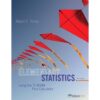
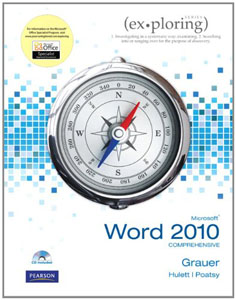


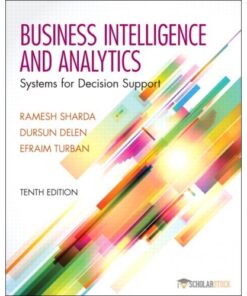
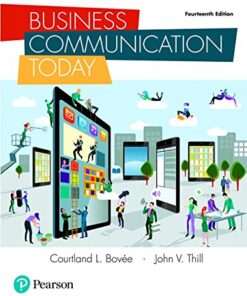
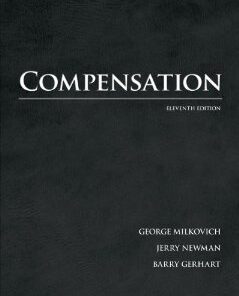
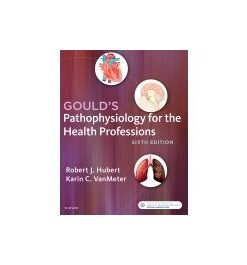
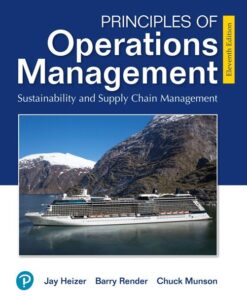
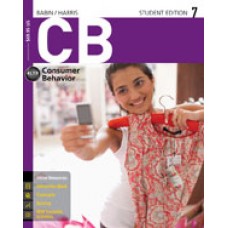
Reviews
There are no reviews yet.